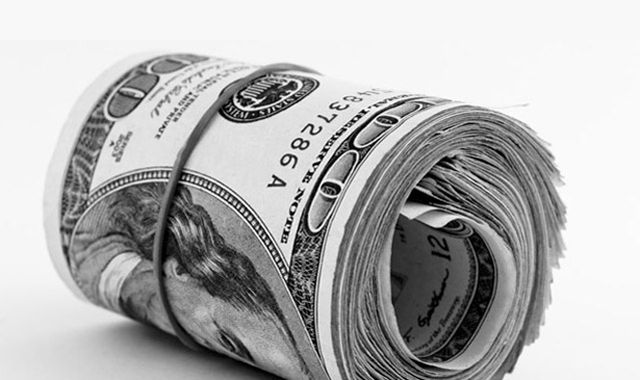Dental hygienists, here are 3 ways to know you are overpaid
One of the big mysteries of dental hygiene practice is how some hygienists are highly paid and some are not. Even people from the same class with the same grades have a per-hour discrepancy that defies logic.

One of the big mysteries of dental hygiene practice is how some hygienists are highly paid and some are not.
Even people from the same class with the same grades have a per-hour discrepancy that defies logic. We bet there isn’t a dental hygienist reading this post who thinks he or she is overpaid. So, really, what does being overpaid mean?
Practice management consultants say a hygienist should be paid one-third of their production. This might work if you are producing as much as the dentist-otherwise a third of production is too high. What the what? We’ve heard this happen to many high caliber dental hygienists. One hygienist paid a commission of 33 percent of collections had her portion reduced to 27 percent by the practice consultant. If looks could kill, that practice management consultant would have assumed room temperature years ago. The other side of this argument is how one-third became the magic number.
Related reading: Hey dental hygienists, it's time to stop blaming the victim
How can you tell you are overpaid?
Look around. According to The Purple Guide: Paper Persona, protocol development is important as it establishes a dental hygienist’s value to the practice. The best time to do protocol development is during down time at the practice and not during your family time at home. How are you using your down time? What is protocol development?
Develop protocols based on the dental conditions of the practice patients. For instance, using topical agents and/or a locally delivered antibiotics to control periodontal disease in patients is a protocol. There are usually a set of guidelines the practice follows for placement of this aid. The missing piece to the protocol is tracking how the treatment is working practice-wide and not just pocket by pocket. If a dental hygienist is not doing the evaluation phase, it could be argued he or she is overpaid.
Hygienists who only do screenings on high risk patients may also be overpaid. All patients can be screened for caries, airway, oral cancer and periodontal disease. All that screening will pay off in treatments from the dental hygiene, or restorative, side and the dental, or prosthetic, side. It may take a while to get all the screenings done (a few months), but the effort will pay off. Writing a newsletter announcing the screenings can be another use of time to increase the dental hygienists' value to the practice.
The third way to evaluate overpayment is to gauge your value without benefit of the rose-colored glasses. You deserve days off, use of the restroom, hydration and adequate compensation. That compensation will decrease when a hygienist decides keeping up with the times or production numbers is too much work.
More from DiGangi and Gutkowski: 3 ways to participate in the dental practice without employees
Continue reading on Page 2 ...
Systems and protocols
Every now and again, we run into a dental hygienist who has all his or her perio numbers in check. All the patients are in a system, and the rapport is awesome.
Increasing value to the office is taking the next step into dental health management. Start by getting up to speed in the airway. Can your perio patients breathe? Is that contributing to their periodontal condition? How much is their systemic health contributing to their oral health? Can you incorporate systemic support?
There are new products that support the reduction in inflammation system-wide that may improve their periodontal health substantially. Obviously, this article is too short to list them all, but we believe that with a little ad reading and investigation, any hygienist can find the list of reasons dental hygienists are overpaid doesn’t apply to them.
Running around doesn’t mean much
Running from patient to patient without time to take a potty break doesn’t make you a valuable employee. President Obama doesn’t skip potty breaks. Keeping current, protocol development and tracking, investigation of products and proposal presentations make a hygienist an incredibly valuable and underpaid part of the practice. We want to hear from you. Do you work with people that are overpaid? Are you?
Related reading: 3 baked-in-the-cake patient-enabling behaviors
Listen to a podcast from DiGangi and Gutkoski on this topic below:
Check Out Entrepreneur Podcasts at Blog Talk Radio with Cross Link Radio on BlogTalkRadio
More from DiGangi and Gutkowski: The truth about alternating codes D4910 and D1110
How Dentists Can Help Patients Navigate Unforeseen Dental Care
December 12th 2024Practices must equip patients with treatment information and discuss potential financing options before unexpected dental treatments become too big of an obstacle and to help them avoid the risk of more costly and invasive procedures in the future.
Floss and Flip Flops Episode 13: The Focal Point of Infection
January 10th 2023The Sanders Sisters jump into 2023 with a discussion of the many conditions that display some of their earliest symptoms in the oral environment, and all the ways this can connect to systemic issues that can become serious health challenges for patients.
Floss & Flip Flops Episode 12: The 12 Medical Conditions of Concern…and a Partridge in a Pear Tree
December 2nd 2022Join the Sanders Sisters as they welcome the holidays and the last episode of their first season of Floss & FlipFlops! In this episode, the sisters discuss the 12 medical conditions on Santa’s list that can indicate a bigger systemic complication, and how you can integrate your knowledge of these conditions in helping your patients achieve lifelong health!
